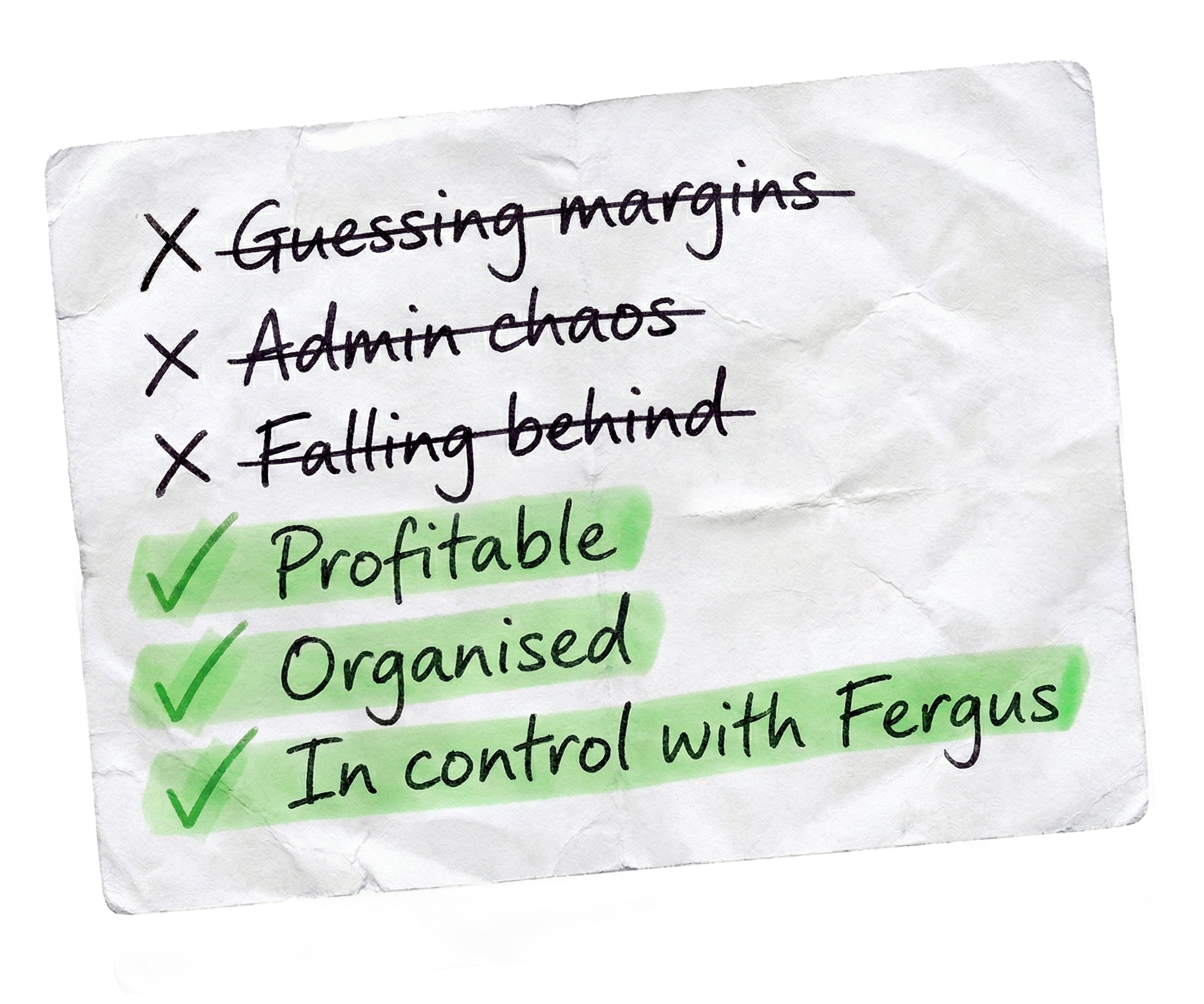
Improving your gross profit margin isn’t just about boosting numbers—it’s about securing the future of your business in the competitive world of trade and construction. Here’s a closer look at how you can effectively enhance your profitability within just 90 days:
Navigating financials without the right tools can be like sailing without a compass. That’s where job management software comes into play. Tools like Fergus are designed not just to track but to boost your gross margin for each project. They provide real-time insights into your financial performance, allowing you to make informed decisions swiftly and accurately. With software like this, you can ensure that no detail is too small to be overlooked and every opportunity for profit is seized.
Understanding your gross margin is the bedrock of financial management. It’s about knowing exactly what each job needs to bring in financially after covering all variable costs, from materials to labour. Strive to achieve a gross margin that compensates for your fixed overheads (ideally keeping them below 30%) and leaves you with a desirable net profit margin (aim for at least 10%). Understanding these figures isn’t just about hitting targets—it’s about ensuring each job contributes positively to your business’s financial health.
Labour costs often eat up a significant portion of the budget, so it’s crucial to ensure that every hour paid is an hour well spent. This means meticulously planning your workforce’s schedule and tasks to prevent idle time and overtime, unless it’s absolutely necessary. Implementing systems that enhance labour productivity not only cuts costs but also boosts morale by reducing unnecessary stress on your team.
Regularly review and audit your overhead expenses to identify areas where spending can be reduced without impacting operational efficiency. This might mean renegotiating contracts, automating certain processes, or simply cutting out unnecessary luxuries. Every penny saved in overheads is an additional penny towards your bottom line.
Effective inventory management can dramatically affect your profit margins. Adopt a strategic approach to purchasing—buying just enough to meet demand but not so much that you’re left with costly excess stock. This requires a good forecasting system and a clear understanding of your project timelines to align your purchases with your actual needs, thereby minimising waste and reducing costs.
Ensure your prices reflect the true cost of doing business, incorporating all direct and indirect costs, and providing for a profit margin that ensures sustainability. Use competitive analysis and customer feedback to fine-tune your pricing models regularly, ensuring they meet market demands while supporting your financial goals.
Lastly, the importance of having a team that understands the financial goals of your business cannot be overstated. Educate your team on how their work affects the company’s gross margin. Engaging them in this way not only helps them understand their impact on the company’s success but also empowers them to take proactive steps towards cost-saving and efficiency-enhancing measures. This shared responsibility fosters a culture of accountability and continuous improvement.
Every decision you make should align with your ultimate financial goals, creating a robust framework for your business’s future.
Strive for clarity, efficiency, and engagement in all aspects of your business operations, and you’ll see the difference not just in your margins, but in the strength and stability of your business as a whole.
Stop drowning in admin & paperwork. Start focusing on the jobs that make you money.



Our 20,000+ trades businesses have slashed their admin, are getting paid faster, and are finally enjoying their weekends again.






